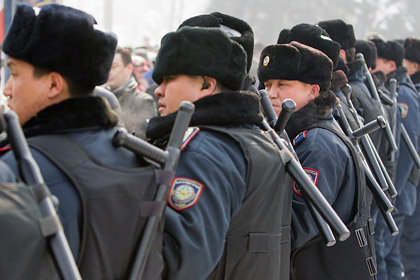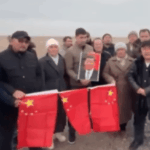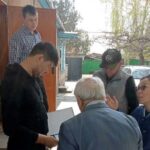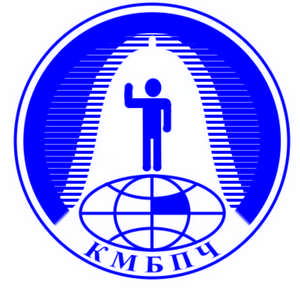Why Kazakhstan does not have police unions, but developed countries do?
At the end of December last year, at a meeting with the Minister of Internal Affairs in Temirtau, Karaganda region, among other questions, a specific proposal to initiate the repeal of the constitutional ban on the creation of trade unions in law enforcement agencies: in the police and in the penitentiary system was voiced. The Minister promised to study the proposal.
Already on the 9th of January the question was studied and we got the answer signed by the Deputy Head of DS of Karaganda oblast (almost Deputy Minister), which stated the attitude of the management to the problems of personnel.
To quote: “Compared to other hired workers of the Republic of Kazakhstan, the interests of law enforcement officers are protected at the legislative level. Employees and members of their families are protected by the state. Social protection of employees covers all aspects related to protection of rights and interests of employees. First of all, it is granting of set of privileges in the part of labor remuneration (exemption from taxes, pension deductions, 100% payment of disability certificates), pension, medical provision, guarantee on compensation payment in case of mutilation, death at execution of service duties, granting of additional leaves, providing of housing payments, etc.”.
Such a bravura reminder to the personnel: don’t wait!
What is there to say? Of course, in vain are trade unions in Germany (two police unions), in Spain and Finland (six each), in the United States (six trade unions at the federal level and dozens in each state), in France (about thirty trade unions), in Turkey (one and very respected). Urgently adopt the experience of reforms in the police from your Kazakhstani colleagues and you will surely be happy!
Based on the logic of this answer, in these countries law enforcement officers are not protected by law, simply from the word “at all”. The OSCE Office, the European Commission and the UN Development Program on reforming the law enforcement agencies should work there – in Europe and in the USA and transfer our experience.
Leaving aside the irony, the following should be noted: most police unions, despite their national specifics, have identical tasks and functions related to wages, security of duty, employment and reduction of time associated with direct duty.
These issues have been and remain the most basic and urgent for police officers. Moreover, for policemen of different countries within the international community.
One example of union activity is the French police officers’ union Alliance 3. The union is constantly demanding security guarantees from the leadership of the Ministry of the Interior, an increase in the number of employees, and additional measures that would make it possible to increase the number of policemen on the force. As well as the adoption of additional measures that would allow police officers serving in problematic suburban areas of Paris to suppress armed attacks by youth street gangs (mainly consisting of natives of African and Arab countries) trying to establish their own control over these areas.
Or the example of Turkey. The average salary of police officers is about 500,000 tenge (6,700 tl). Strictly rationed working hours, housing, early retirement, and most importantly: the pension itself is very high. This is an honorable profession – police officers in Turkey are respected and trusted.
I daresay that the heads of police in our country, indeed, will only have to attract employees in accordance with labor law to “reinforce”, “expose”, pay overtime, night, work on public holidays, deal with the issues of additional training (retraining for future employment). Also we would have to think about young employees with the initial salary of 140 thousand tenge (this is not a joke), providing them with accommodation, transportation, etc.
Two words on the subject. According to the department, last Sunday (19.02.2023) a police inspector, captain (we do not give his name for obvious reasons), died suddenly at a local police station in Karaganda. It is specified that the doctors made a preliminary diagnosis – according to them, the policeman died of heart failure.
The leadership, the Council of Veterans, and the personnel of the Karaganda Region Police Department expressed their deepest condolences to the family and friends of the deceased. Only the question about the reasons of this very heart failure remained open… It may be that the reasons are a bit higher. To the paragraph.
There are a lot of tasks for the union’s activity. However, the Kazakh police leaders say the following: “…Considering the creation of trade unions is not relevant. Sadly, gentlemen leaders. Let’s work to actualize the perception.
















